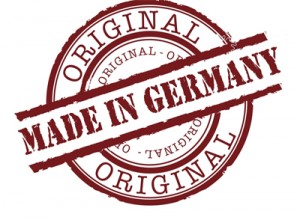* The series is based on phone or face-to-face interviews and written input, therefore please excuse language mistakes which might reflect foreign language influences.
1.Are there any PR practices in which you think your region differs from PR in other part of the world?
Wibke Sonderkamp: Quoting a US blogger living in Germany “Germans are brutally honest”, and this is not because they mean any ill-will, it is simply because Germans love facts.”
German journalists dealing with tech topics are usually very well informed and love digging into technical details. For press meetings it is therefore important to have a spokesperson who can answer those kind of questions.
The way we compose press releases in Germany also differs at least from US, UK and Asian press releases which are very formalized and often contain a lot of marketing language. Our colleagues often tell us they don’t even expect a press release to be published as an article but they will draft and pitch articles separately. This process is a bit more streamlined over here. Journalists expect us to get rid of the marketing phrases and to provide them with facts, figures and information in a way they can easily transform into articles without additional interaction with the company or agency. (German efficiency – Just quoting another cultural prejudice ;o)
Even if the creation or localization of press releases requires more work, the bright side is that they most often produce a lot more coverage than in other regions. Specialized agencies like ours also send the press release directly to editors covering this specific topic instead/or in addition to using newswire.
2. Can you describe common mistakes foreign companies make?
Wibke Sonderkamp: Although the media preferences are well known we still see a lot of 1-2-1 translations of US/UK/Asian press releases and press material. There are two common reasons for this: A) the company insists it can only be a direct translation without changes as there is nobody who could approve an adapted German version or B) just translating a release is certainly quicker and easier. As some companies today tend to go for the cheapest offer they have to keep in mind that a very low press release price might only cover a simple translation. This is definitely an area where going cheap and seemingly saving money will actually result in wasting money if the companies would check the ROI in regards to the coverage results.
Another common mistake for companies is to think their campaigns will work worldwide and to ignore local angles by not integrating their local sales/marketing/PR teams into the decision making process. This way some companies completely miss the local market demands of current hot topics they could address. I spoke to a completely desperate country manager once who had invested a lot into achieving excellent test results and certifications he was planning to use for the local PR and Marketing campaigns. The headquarter however completely ignored the local input and he had to use the translated global material which he knew just by the look and feel of the campaign would not work well in his local market.
Regarding press meetings many foreign companies think they can dominate the meeting by giving their marketing presentation with a nice sales pitch. If you do so you can practically see German editors closing up and loosing interest immediately. They expect fact-based news and relevant company background (which can be given in a short presentation) information as well as a dialogue about the presented products/solutions.
3. What do clients from other markets need to keep in mind when they plan to do PR in your region?
Wibke Sonderkamp: As for most markets local expertise and localization of the communication efforts is the key to successful PR. I can never understand why some companies pay for local support if they are not prepared to make use of the local insights. It is therefore a good advice for a company to look for a PR agency that has the local expertise as well as experiences in international PR initiatives. This way the agency can help the client to plan campaigns across borders, integrating local specifics while making sure PR communication is aligned with the overall corporate messaging.
Keeping in mind the German specifics described before, companies have to keep in mind that Germans have what I once heard someone describe as “a very low marketing bullshit tolerance”. Most editors prefer technical or operational spokes persons to Marketing Managers and will appreciate a down-to earth and hands-on attitude.
Feedback from our clients tells us that once the company representatives have absorbed the first shock regarding the editors’ critical questions and “in the face”-feedback they appreciate meetings with the German press very much. In addition to the often useful feedback “you’ll always know what the editor thinks”, as one of our clients put it. “So if he thinks the solution is lacking in certain areas you will have the chance to explain any misunderstandings or to admit some weak points and follow-up when the problems have been solved. While in other countries an editor might smile and nod throughout the meeting and write an awful review afterwards. AND after a meeting in Germany there is always the option to go to a beer garden or restaurant and to enjoy some nice German food and excellent beer or wine”
***
Next week our PR series will visit India – a land of extremes where some cities have more inhabitants than smaller European countries, where things often look so chaotic that many foreigners wonder how anything could possibly work at all, and which booms in many markets nevertheless. The mobile market is a good example with currently 650 million mobile connections and with 12 million being added every month.
______________________________________________________________
Founded in 1990 the Munich based GlobalCom PR Network GmbH has been supporting Companies PR and Communication in Germany, Austria and Switzerland for more than 20 years. Through the international agency network GlobalCom also supports international accounts and campaigns. The agency is focused on IT and technology topics including the cleantech market. GlobalCom’s CleanEnergy Project is the largest German language Community in the market for cleantech, new energies, renewables, sustainability, etc. with more than 30.000 members.


